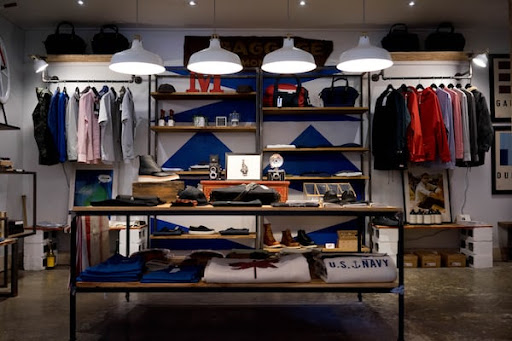In the fashion world, where change is the only constant, it’s important to stay on your toes and avoid getting left in the dust. As things stand, the fashion industry is rapidly growing, and the revenue of the global apparel market reached a staggering $1.53 trillion in 2022.
The key to success lies not just in understanding trends and designing appealing garments but also in managing your business operations effectively. One important tool that can help you achieve this is enterprise resource planning software. An ERP system can help manage and streamline all of your business operations, from design and production to sales and customer service.
But what makes dedicated ERP software so crucial for your fashion brand? The answer lies in understanding the unique challenges and demands that the fashion industry presents.
Understanding the Fashion Industry’s Unique Challenges
The fashion industry stands apart from many other sectors due to several distinct characteristics. It’s a world where trends change at lightning speed, where seasonality plays a crucial role, and where sales channels are as diverse as the garments on display. These aspects, coupled with the necessity of efficient inventory management, make the fashion industry complex but also attractive.
Additionally, fashion products come in different sizes, colors, and styles. The task of effectively managing these variants and keeping track of inventory levels for each one is complex. However, with a dedicated fashion ERP software you can simplify complex processes and enhance efficiency.
Core Benefits of Dedicated ERP Software:
Enhanced inventory management
An efficient ERP system can manage inventory across a multitude of channels. Whether it’s brick-and-mortar stores, online platforms, or various warehouse locations, an ERP system keeps track of it all.
This can help prevent overstocking or understocking, thereby reducing costs associated with unsold inventory or lost sales. Additionally, better inventory management leads to improved customer satisfaction as it ensures product availability and timely delivery.
Improved data analysis
In the digital age, data is king. ERP software consolidates and analyzes data from across the organization, providing deep insights into sales trends, customer behavior, and supply chain efficiency. These insights can help drive strategic decision-making, enabling your brand to adapt swiftly to changes and improve overall business performance.
Seamless integration
One of the biggest advantages of ERP systems is their ability to integrate various business functions. From design and production to sales and customer service, an ERP system ensures that these diverse functions work in harmony. This streamlining of operations reduces inefficiencies, improves collaboration between different departments, and enhances the overall productivity of the brand.
Enhanced customer service
With an ERP system, your customer service team can have access to real-time data about product availability, order status, and customer history. This empowers them to respond to customer queries and concerns more efficiently, thereby enhancing customer satisfaction and loyalty.
Compliance and reporting
In an industry that’s heavily regulated, ERP software can help ensure compliance with industry standards and regulations. It can also generate comprehensive reports, making it easier to track performance, identify areas for improvement, and make informed decisions.
The Power of Dedicated ERP Software
Think about ERP not just as some fancy tech but as a total game changer. When you decide to bring on board customized ERP software for your fashion brand, it means you’re equipped with the right tools to protect yourself from all the challenges the industry might throw at you. You’ll be able to handle the unique challenges of the fashion world, smooth out the bumps in your operations, and score some serious competitive points.
What’s more, an ERP system pushes you to make choices based on solid data. And in this fast-paced, always-shifting business scene, that’s a real lifesaver. But remember, investing in an ERP system isn’t just about purchasing a piece of software; it’s about banking on your brand’s future success. It’s a win-win bet.
Conclusion
Adopting dedicated ERP software is no longer a luxury but a necessity for any apparel brand that seeks to thrive in the dynamic, fast-paced world of fashion. With its unique ability to streamline operations, enhance inventory management, improve data analysis, integrate various business functions, and bolster customer service, an ERP system provides an all-encompassing solution to the distinct challenges that the fashion industry presents.
Its contribution goes beyond mere process management; ERP software is a strategic tool that empowers fashion brands to adapt to rapidly changing trends, ensure compliance, and make informed, data-driven decisions. Therefore, investing in dedicated ERP software is, in essence, investing in the future success of your fashion brand. By adopting such systems, your brand can stay competitive, efficient, and relevant in an industry marked by continuous evolution and growth.




